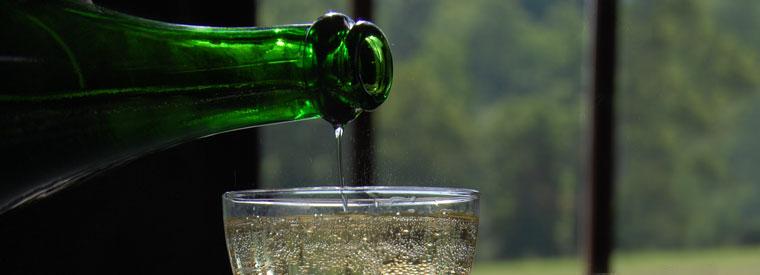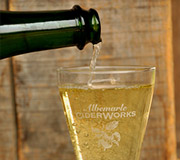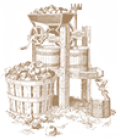These days the word "cider" is often used in this country to describe unfiltered and usually pasteurized apple juice, but this wasn't always the case.
Cider: The Favorite of Our Ancestors
Historically, and in other cider drinking countries today, "cider" is fermented apple juice, and was the libation of choice in colonial and early America. Cider was already a centuries old tradition in England by the time America was settled, and the first settlers to the New World brought with them both cidermaking knowledge and the apples necessary to its production. Except for two species of crabapple, apples are not native to America, nor do they come true from seed, and so the extensive seedling orchards planted by early Americans would have produced a bevy of new apple varieties. Most of these seedling apple types would have been unappealing for eating fresh, but many made excellent cider, and as such were enjoyed as a locally pressed alternative to coffee, tea, and wine, all expensive imports.
A Healthful Beverage
It is hard to overestimate the importance of cider in America in the colonial and early national periods. It provided vital nutrients in a time when what one ate was what one grew and preserved. In an era in which principles of sanitation and bacterial contamination were poorly understood, potable water was often not readily available; fermentation out-competes things like e-coli, and so cider was touted as a healthful alternative to water. Men, women, and even children drank it regularly. Sailors relied on it as a protection against scurvy on long voyages, as unpasteurized cider contains a supply of vitamin C. It was used for barter and trade as well, and even played a role in early political elections.




